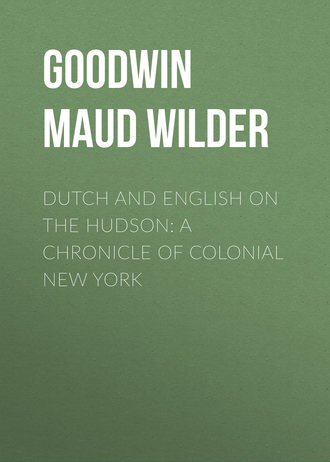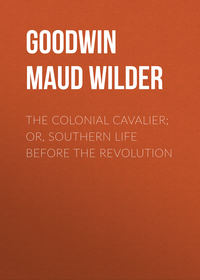 полная версия
полная версияDutch and English on the Hudson: A Chronicle of Colonial New York
2
See the monograph by Augustus H. Van Buren in the Proceedings of the New York Historical Society, vol. xi, p. 133.
3
Van Twiller's advocate, W. E. Griffis, quotes the Nijkerk records in proof that Van Twiller was born on May 22, 1606, which would fix his age at twenty-seven when he was sent out to the colony. The editor of the Van Rensselaer-Bowier manuscript states that Kiliaen Van Rensselaer was born in 1580, that his sister, Maria, married Richard, or Ryckaert, Van Twiller and that the Wouter of our chronicles was their son and therefore Van Rensselaer's nephew. We are the more inclined to accept the year 1606 as the true date of Van Twiller's birth because the year 1580, previously accepted by historians, would have been the same as that of the birth of Kiliaen Van Rensselaer himself, and because, according to the author of the Story of New Netherland, Maria Van Rensselaer was betrothed in 1605. Otherwise we should find it almost beyond credence that a youth of twenty-seven should have been so suddenly promoted from the counting-house at Amsterdam to the responsible post of Director of New Netherland.
4
Brodhead, History of the State of New York, vol. 1, p. 337 (note).
5
In 1657 the burgomasters and schepens were authorized to create a great burger-recht the members of which should be in a sense a privileged class. It was set forth that "whereas in all beginnings some thing or person must be the first so that afterward a distinction may take place, in like manner it must be in establishing the great and small citizenship." For which reason the line of great burghers was drawn as follows: first, those who had been members of the supreme government; second, the burgomasters and schepens of the city past and present; third, ministers of the gospel; fourth, officers of the militia from the staff to the ensign included. The privileges of this caste were open to the male descendants of each class; but as they could be secured by others outside the sacred circle on payment of fifty guilders it is difficult to understand wherein the exclusiveness lay. The small burghers were decreed to be those who had lived in the city for a year and six weeks and had kept fire and light, those born within the town, and those who had married the daughters of citizens. A payment of twenty guilders was exacted of all such. This effort to promote class distinctions was soon abandoned. In 1668 the distinction was abolished and every burgher, on payment of fifty guilders, was declared entitled to all burgher privileges.
6
Bellomont was commissioned Governor of Massachusetts and New Hampshire, as well as of New York.



